Solidifying the long-term quality and accessibility of Denver’s extensive park system
Denver Parks Asset Condition and Park Quality Study
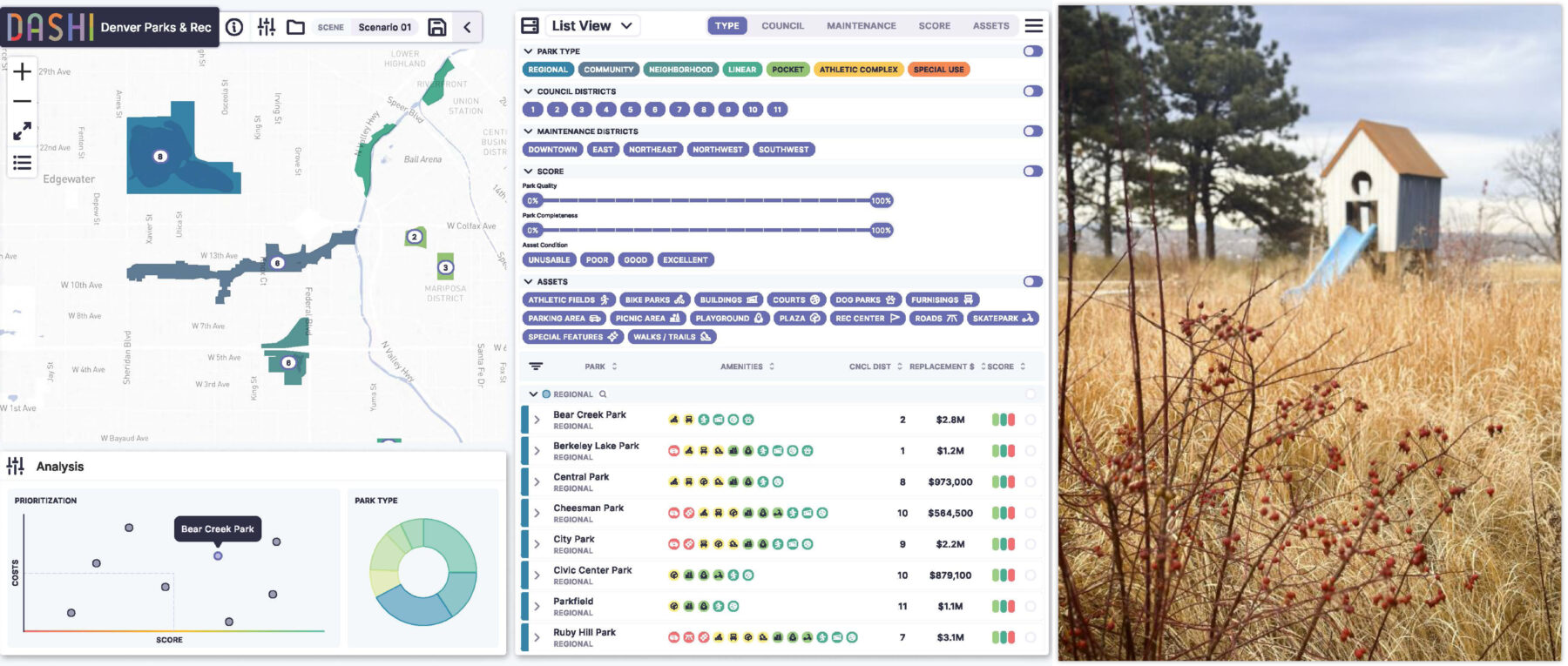
Denver’s expansive and diverse park system encompasses nearly 300 parks and spans over 6,000 acres within the city, with an additional 14,000 acres in the mountain parks and conservation areas beyond the city limits. These parks contain more than 10,500 individual capital assets, ranging from playgrounds and picnic areas to athletic fields and parking lots. Sasaki was selected by Denver Parks & Recreation to develop standardized criteria for asset assessment, catalog these assets, and establish a prioritization approach integral to the 5-year capital planning process.
Denver Parks and Recreation (DPR) sought a data and equity-driven model to provide a comprehensive evaluation that extends beyond the physical condition of a park. In collaboration with the DPR team, Sasaki formulated an approach to park quality assessments that includes more subjective evaluation criteria, concentrating on factors outlined in Denver’s Game Plan for a Healthy City, another Sasaki-led planning effort. Those factors include promoting diversity within parks, connecting with Denver’s nature and culture, and growing park-system access for all users. By cultivating a more nuanced understanding of park quality, the study helps inform strategic planning and equitable investments, ensuring that Denver’s parks remain vibrant and enjoyable community spaces for all.
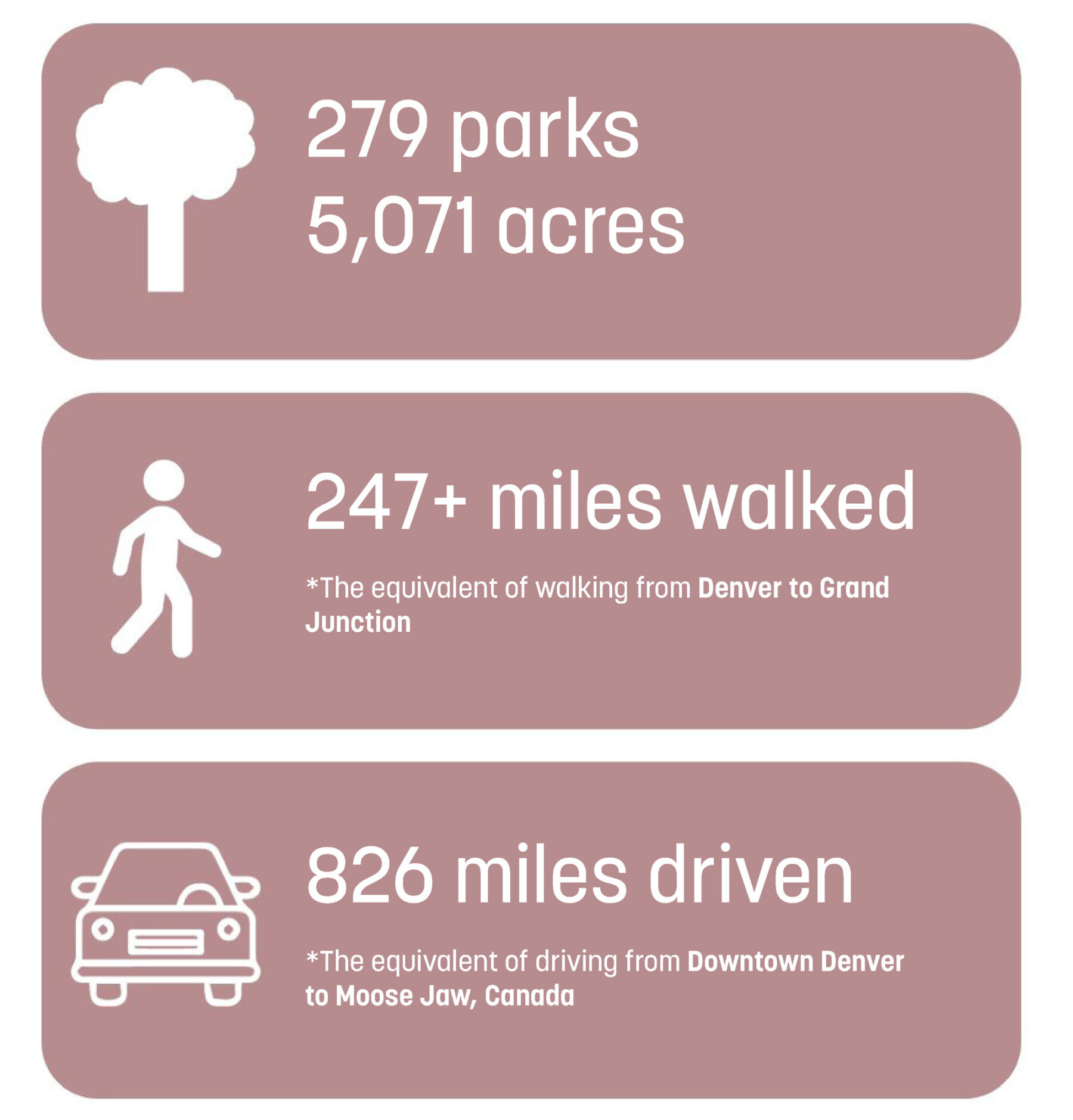
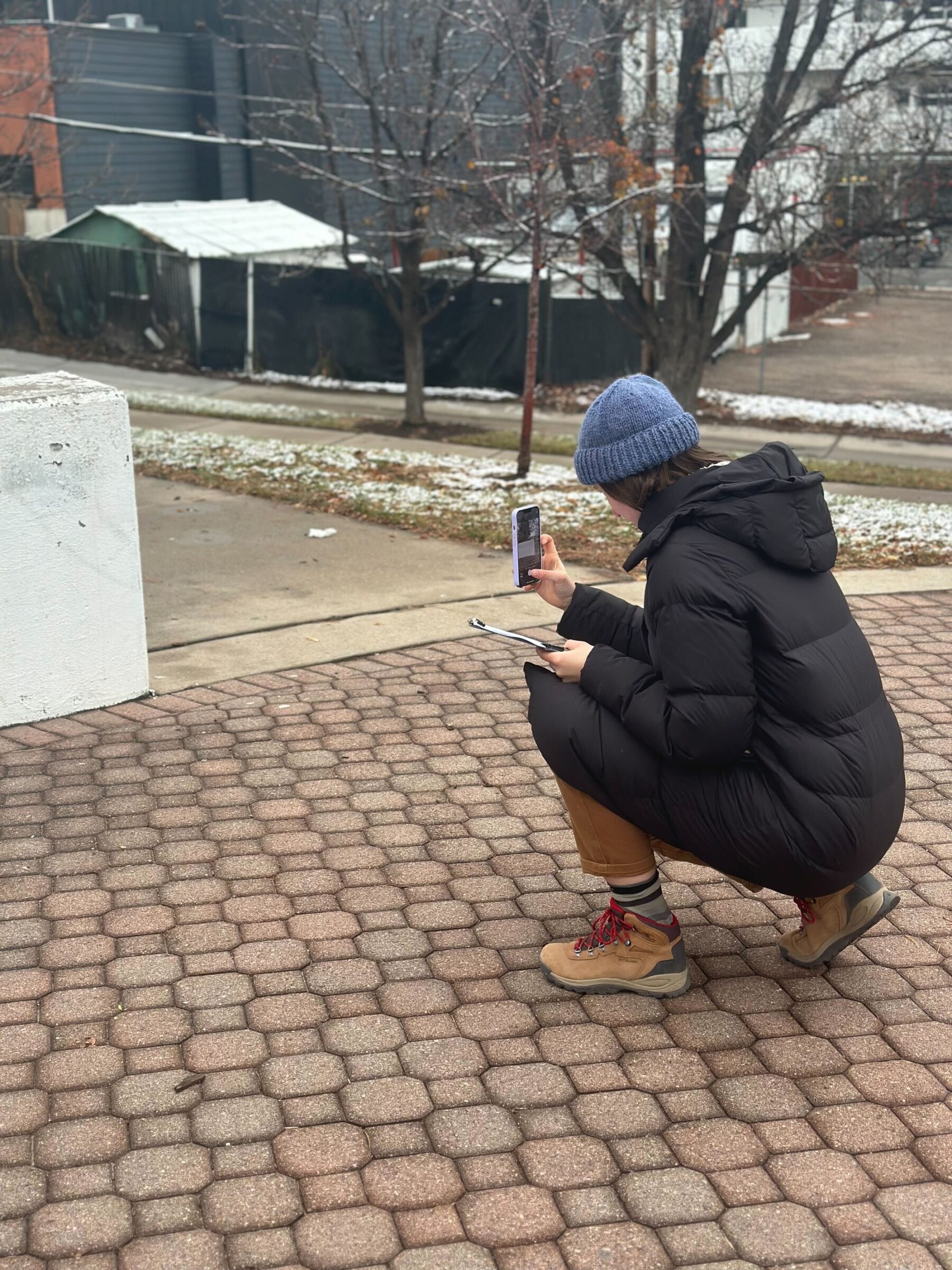
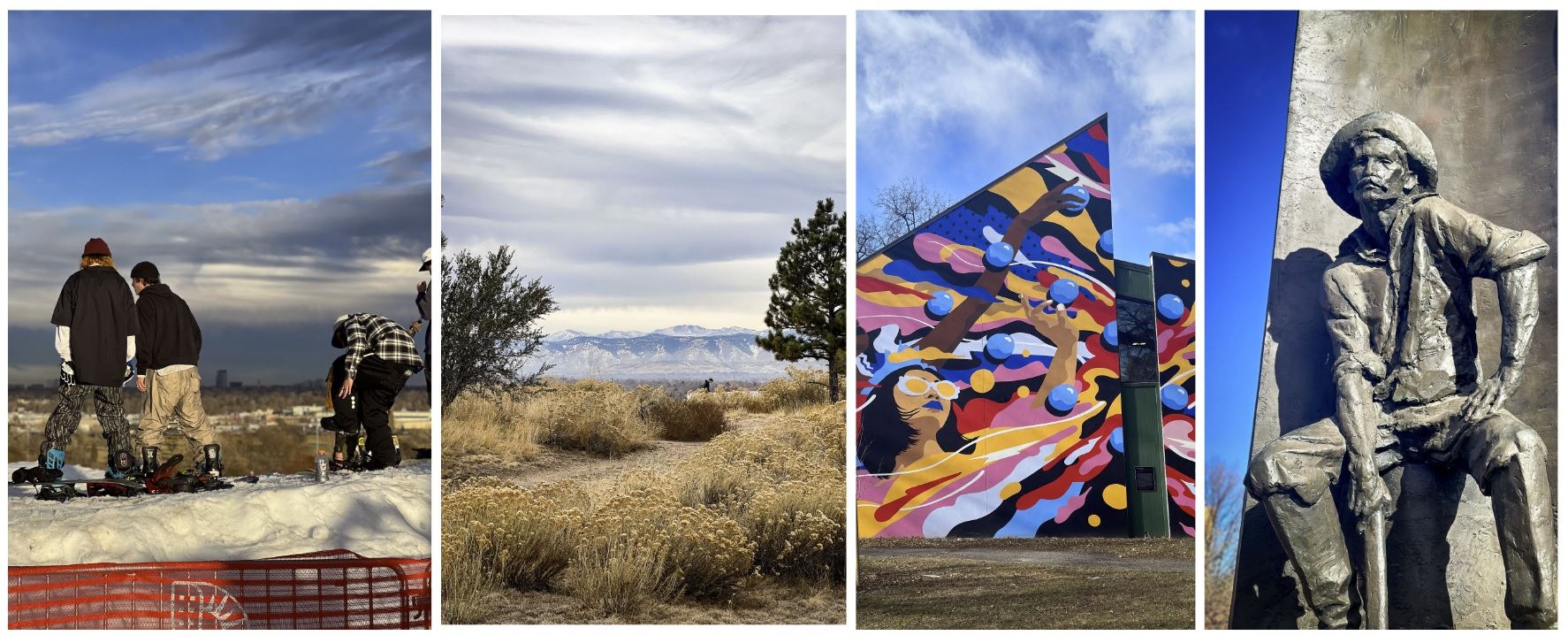
The project involved extensive field assessments of Denver’s parks system over the course of 8 months. The team visited 279 parks, walking a total of 245 miles and evaluated 10,500 individual capital assets.
Process and Methodology
The goal of the study was to develop a unique and innovative approach to evaluating parks through the lenses of condition, characteristics, and quality to help plan for capital investment. To achieve this, Sasaki developed three scores to quantitatively measure park attributes across each park typology: Asset Condition Score, Park Design Score, and Park Completeness Score.
The Asset Condition Score evaluates the overall condition of all assets within each park; the Park Design Score assesses a park’s design attributes based on the type of park; the Park Completeness Score assesses a park’s inventory of desired assets based on the type of park.
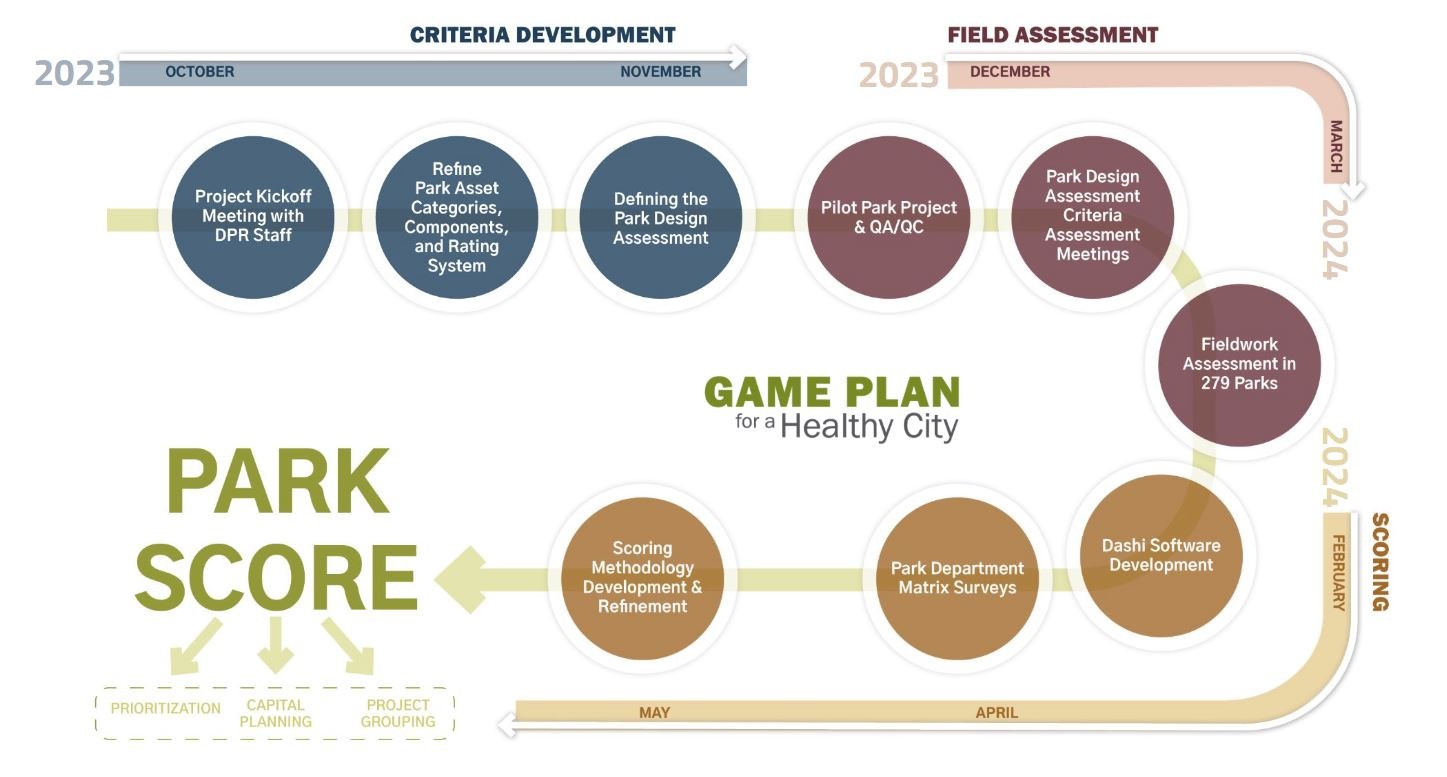
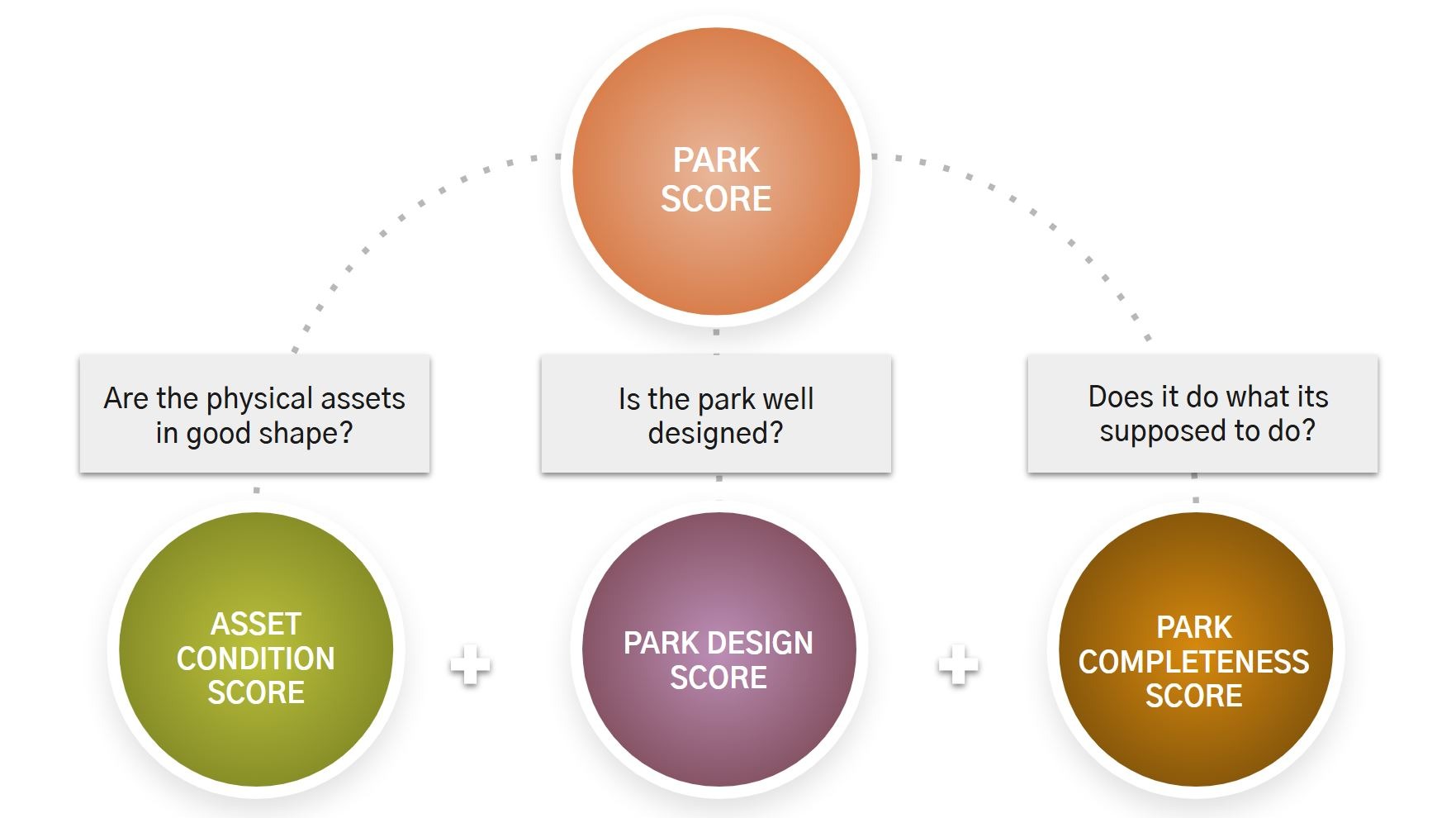
The team developed a method to evaluate the condition and value of parks across the system in an unbiased, equally distributed manner.
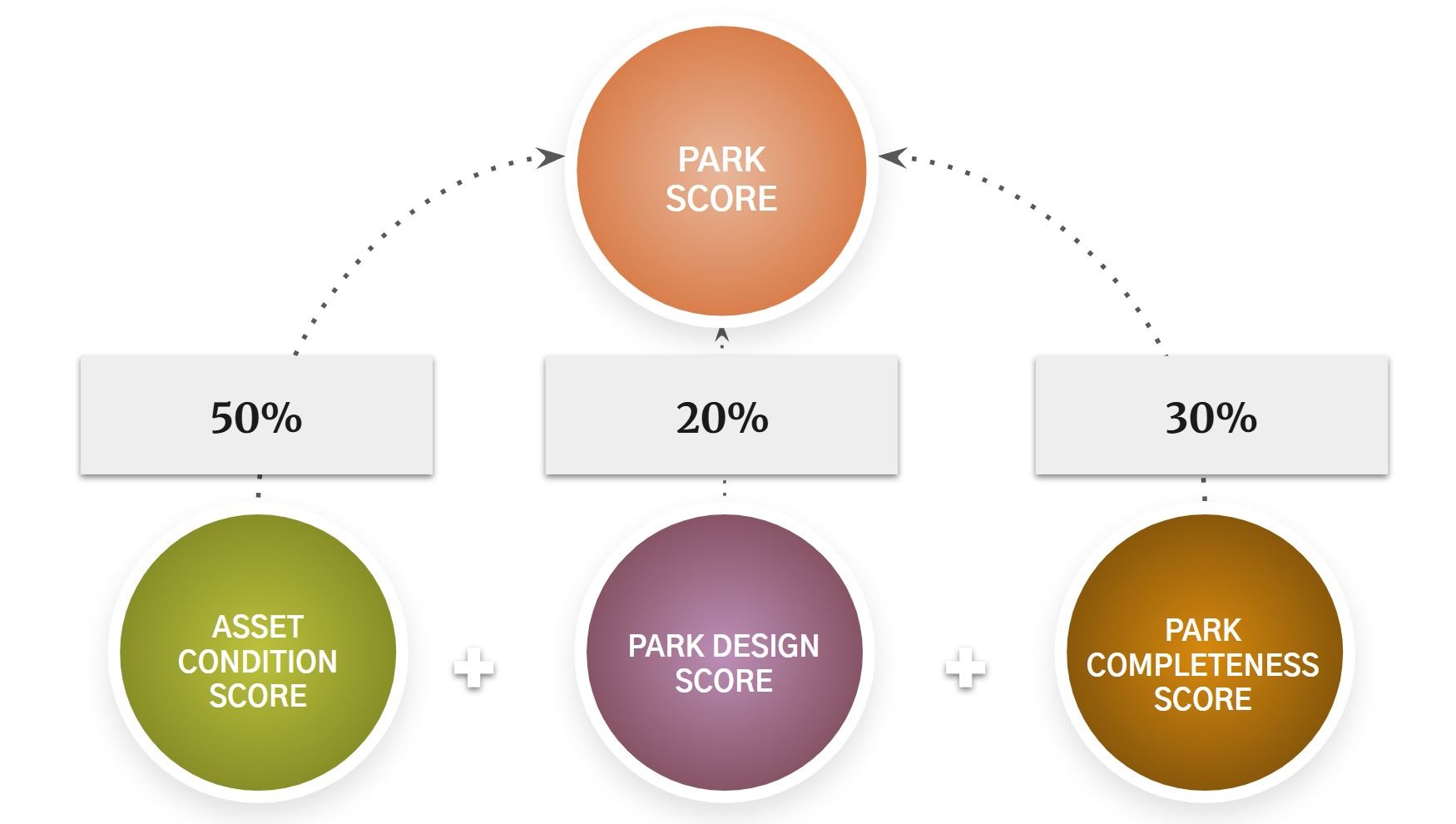
Insights and Recommendations
With the criteria and methodology for assessing asset condition and park quality in place, Sasaki leveraged ESRI’s Field Maps software to conduct evaluations at 279 parks in the Denver Metro area, collecting valuable field data. This data, along with other citywide GIS data furnished by DPR, was integrated into Sasaki’s Dashi software, enabling real-time analysis and prioritization for strategic capital implementation planning. This holistic approach not only provides a thorough understanding of current park conditions and quality, but also allows for forward-looking, data-driven recommendations for the enhancement and expansion of Denver’s park system.
As a live dashboard, Dashi integrates the data collected from fieldwork across Denver’s parks with innovative scoring models to facilitate park planning and capital investment. The platform presents the ability to filter and summarize data spatially, providing real-time output data in various dynamic visualizations to fully understand park and amenity condition quality.
Version 2.0 of the Dashi platform is in progress and will be released in Summer 2025, including an array of new user features.
想了解更多项目细节,请联系 Anna Cawrse或Brian Wethington.
